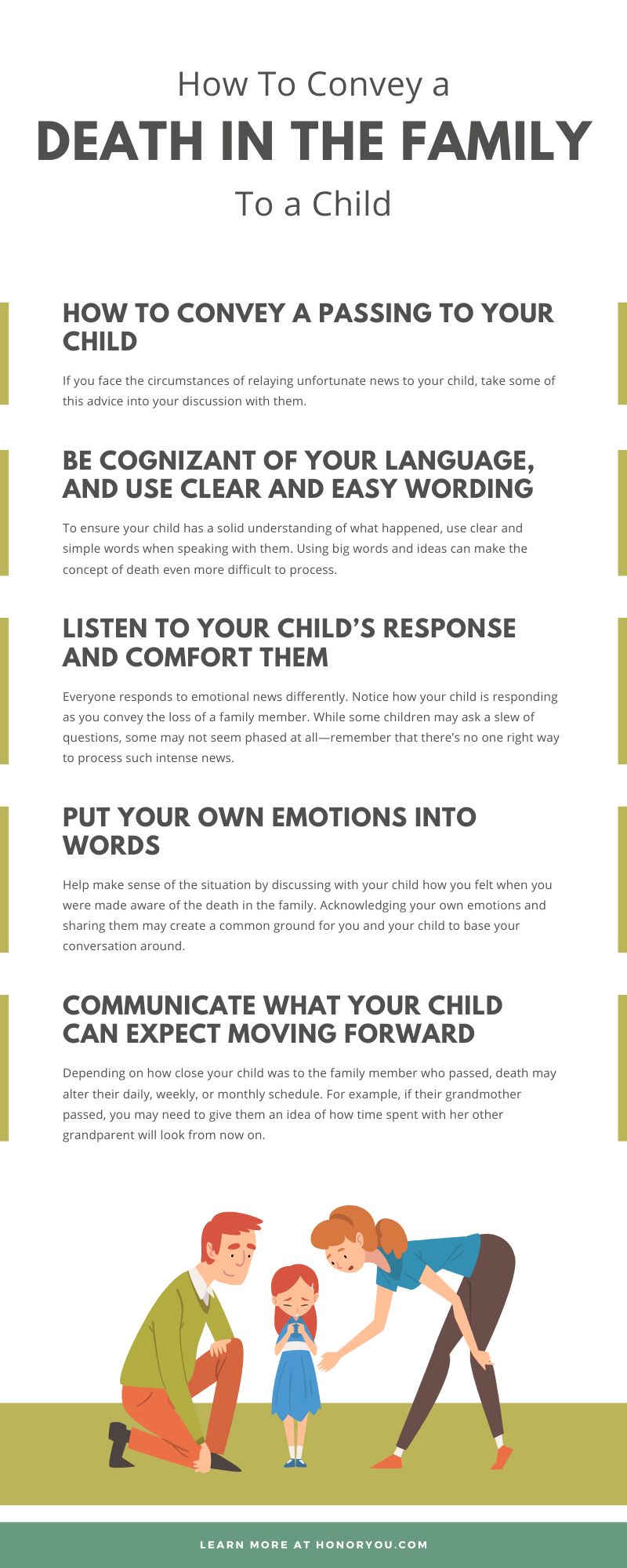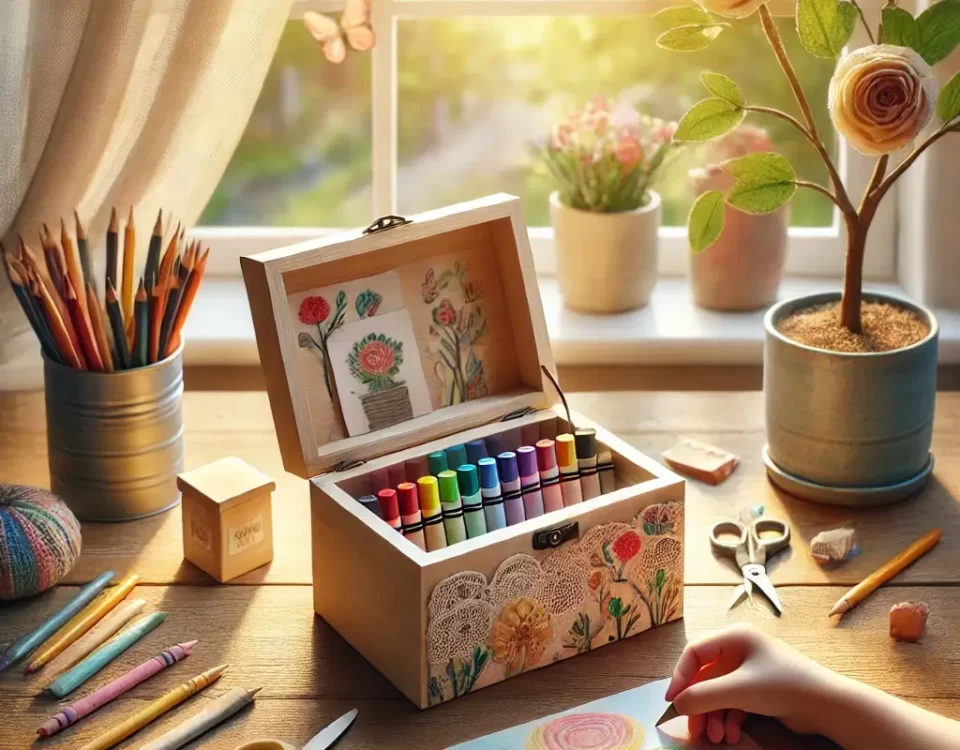How To Convey a Death in the Family To a Child
Death, whether unexpected or not, can be a challenging concept to comprehend, especially for a child. At such a young age, children are still learning how to process and communicate their emotions in a healthy and effective way. How we construe death to a child can have a great impact on their receptiveness to the information of a person’s passing. HonorYou understands that relaying this news can be difficult for everyone involved, so we’ve constructed a guide on how to convey a death in the family to a child. Learn the dos and don’ts of construing loss to make the conversation a little easier.
How To Convey a Passing To Your Child
If you face the circumstances of relaying unfortunate news to your child, take some of this advice into your discussion with them.
Be cognizant of your language, and use clear and easy wording
To ensure your child has a solid understanding of what happened, use clear and simple words when speaking with them. Using big words and ideas can make the concept of death even more difficult to process.
Choose an appropriate time to break the news to them. Approach them with gentle but direct dialogue. Take time between phrases to check in with how they are dealing with the information.
Opting for basic language can make the discussion feel much less grandiose and intimidating for both parties.
Listen to your child’s response and comfort them
Everyone responds to emotional news differently. Notice how your child is responding as you convey the loss of a family member. While some children may ask a slew of questions, some may not seem phased at all—remember that there’s no one right way to process such intense news.
Tend to them in a way that is comforting without being overbearing. Answer whatever questions you can and be honest with the questions you can’t answer. The best thing you can do in that moment is to be there for them, as they are there for you.
Put your own emotions into words
Help make sense of the situation by discussing with your child how you felt when you were made aware of the death in the family. Acknowledging your own emotions and sharing them may create a common ground for you and your child to base your conversation around.
When learning how to convey a death in the family to a child, know that personal expression of your own emotions is likely to prompt them to be honest with their feelings in return. Showcase that it is okay to share. In doing so, you are bound to feel more emotional relief, too.
Communicate what your child can expect moving forward
Depending on how close your child was to the family member who passed, death may alter their daily, weekly, or monthly schedule. For example, if their grandmother passed, you may need to give them an idea of how time spent with her other grandparent will look from now on.
The change that follows a loss is very sad and can feel jarring. Letting your child know ahead of time how their routine will change will be beneficial to their adjustment.
Explain the services or ceremonies that will take place
Let your child know how you plan to celebrate their family member’s life. Communicate the significance of a proper service, as well as proper etiquette.
Funeral ceremonies are very emotionally charged events that can be overwhelming to folks of any age. Speak with your little one about what they can expect at each kind of service you organize, whether it’s a reception or burial. Reassure them that you’ll be there for them every step of the way and answer any questions they may have pertaining to the ceremonies.
Give your child a minor responsibility if they’d like
One approach that can help your child understand what’s going on and handle the reality of the situation is to get them involved. Having even the most minor role can increase their ability to handle an unfamiliar event, such as a funeral. Ask your child if they would like to be involved in picking photos, reading a poem or prayer during the service, or making a small tribute for display.
If your child is older, they may be interested in watching and helping you design items for the memorial. HonorYou offers a thorough design system for our funeral acknowledgement cards and programs that is easy to use and guarantees cohesive funeral products.
Find ways to remember your loved one together
Honor your loved one by partaking in traditions, recalling fond memories, and encouraging your child to join you in sharing their legacy. You can help your child remember their late family member by looking at old photos. Evoking favorite memories can benefit the grieving process for everyone involved.
Stay tuned in to their emotions and actions
Bereavement for a loved one does not take place in one day. Sadness can show itself in various behaviors, too. Remain cognizant of your child’s habits to assess whether they are healing or if they may need additional support.
Hold a follow-up conversation with your child to see how they are feeling about the loss. Some children deal with grief over a longer period than others, neither of which is right or wrong. Continue to listen and stay in tune with their feelings to let them know you are there to support them.
Partake in activities that make them feel better
Though it can be hard to remain active while dealing with your own heavy feelings, getting out to do fun activities will be of value to both you and your child. In addition to talking about their feelings, children should participate in things that make them happy. Drawing, baking, playing—there’s an array of entertaining pastimes for you two to take part in.
Remember that everyone has a unique response to grief
You and your child are not going to express your emotions in the same fashion. Positive and frequent communication about how both of you are feeling can foster a stronger bond and greater understanding of one another. Reassure your child that their feelings are valid and encourage them to express their emotions by setting a good example of expressing your own.
Children can be highly receptive to information when it’s construed to them in an age-appropriate way. Though death is a harrowing subject, it is important to speak with your child about it to relieve any stress or confusion they have about it. Talking about the matter is sure to help your grieving process, too.





